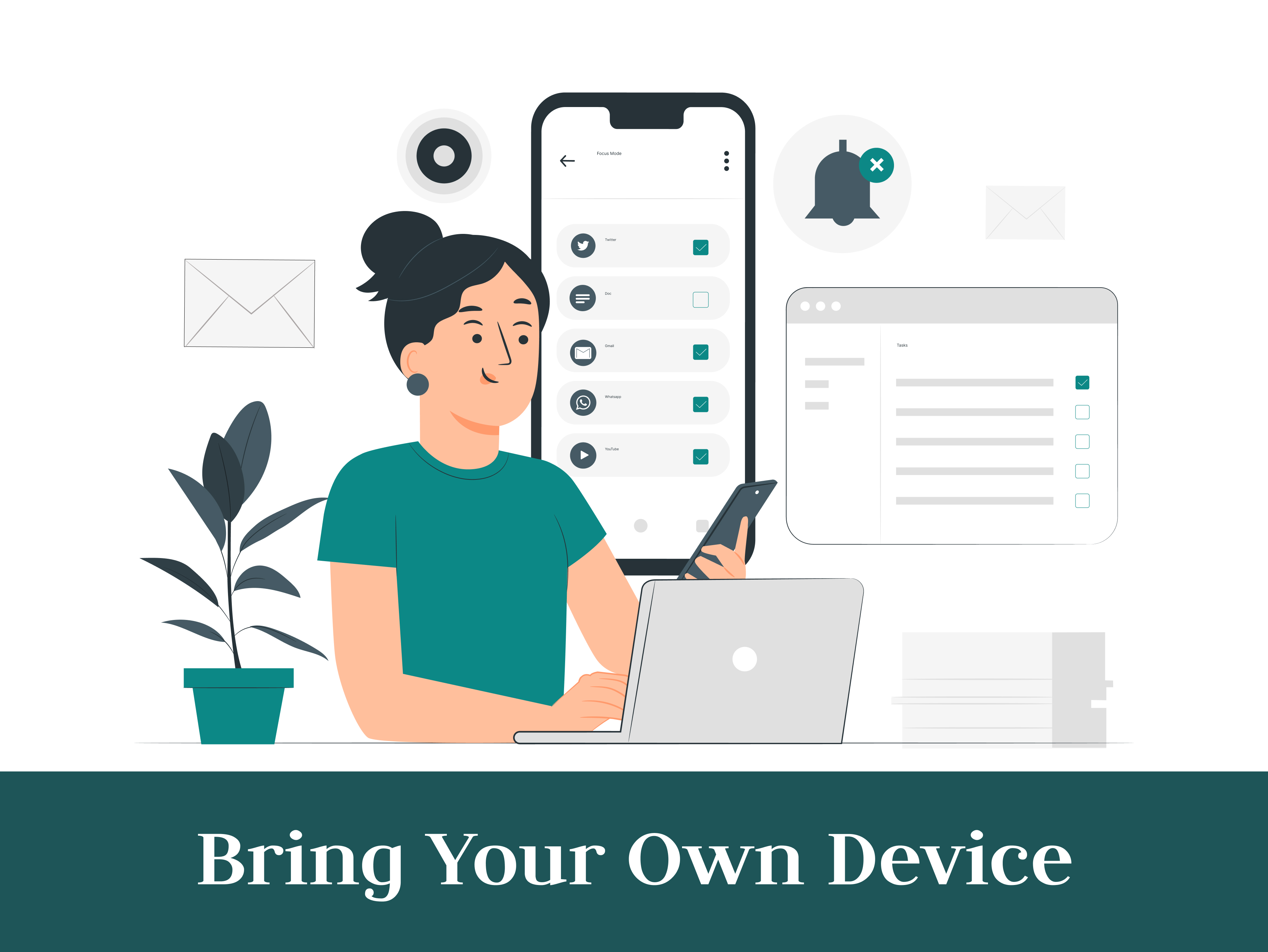BYOD and what it means for the Healthcare industry

BYOD – Meaning & Significance
The term BYOD implies Bring Your Own Device where organizations allow their employees to use their personal devices for work purposes. These personal devices include smartphones, laptops, iPhones, tablets etc as part of the BYOD strategy of organizations across sectors. Nevertheless, healthcare organizations especially in developing economies like India are still in dilemma about BYOD policies and its overall impact on healthcare scenarios.
The Significance of BYOD in the healthcare industry – Benefits & Challenges
The BYOD in healthcare has proven to be impactful and effectual in driving better processes in the healthcare industry. The healthcare facilities are moving rapidly towards digital transformation due to the testified benefits of BYOD.
The role of technology is well proven through Electronic Health Records or EHR, Personal Health Records or PHRs, telehealth devices, mobile health or mHealth applications and remote monitoring technologies.
With the proliferation of mobile devices and mHealth platforms, many healthcare systems are taking a new approach to BYOD. The healthcare industry is introducing BYOD programs with the rising surge of mobile technology and its usage.
Mobile devices are helping physicians and nurses to make informed decisions by delivering better healthcare services especially when these devices are personally owned by healthcare staff and as such are allowed to bring for work as part of their healthcare BYOD program.
Hospitals and clinics using BYOD as a policy are witnessing the following benefits or gains such as-
- Using devices that the medical staff were familiar with
- Resulting in taking quicker decisions and actions
- Establishing 24/7 connectivity
- Improvement in the quality of services
- Reduction in the dependency on hospital owned devices
A 2015 study published in the Journal of Hospital Librarianship estimated that 85% of healthcare professionals were bringing their own devices to work. Likewise, a growing number of connected devices and wearables are generating medical grade data, independent of any interference from the users.
The data thus derived can be valuable for the healthcare provider if this data can integrate with health records. Easier communication among healthcare team members is cited as the top driver for supporting a BYOD environment.
BYOD – Challenges & Solutions
The major challenges that the healthcare industry is facing include issues such as-
-
Security
A typical BYOD device at the hospital can contain information about a patient’s medical history, medications, current condition and treatment, lab test data and radiology images. The employees access this data to provide smooth treatment or to get an expert opinion and in such cases, the data may be susceptible to malware attacks and phishing frauds.
In such circumstances, the BYOD policies of the concerned healthcare provider should remind staff of what constitutes personal healthcare information and why it must be controlled and protected.
-
Legislative consequences
Misuse of patient sensitive data on the device of healthcare employee is possible, where the mobile device is stolen or lost. In the United States, patient data is termed as Protected Health Information or PHI and any data breach on a BYO device potentially violates the HIPAA- Health Insurance Portability and Accountability Act.
-
The Internet of Things or IoT in healthcare
With the Internet of Things or IoT, now penetrating to the edge of the physical world is bringing in new physical elements to security concerns with billions of things beginning transporting health and wellness data.
Nevertheless, the healthcare industry should consider reshaping their IT or cybersecurity strategies by using a blend of approaches from mobile and cloud architecture combined with industrial control, automation and physical security.
Finally, it can be concluded that as the BYOD phenomenon involves, the healthcare industry should tailor their strategies to accept and protect data with a strong BYOD policy in place for providing better healthcare services.
